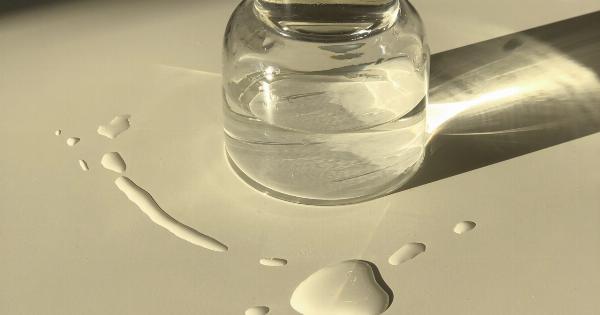Bisphenol A (BPA) is a chemical that is widely used in the production of polycarbonate plastics and epoxy resins. These chemicals are used in a variety of products, from food and beverage containers, to water bottles, to electronics.
Despite its widespread use, there has been growing concern over the potential health risks of exposure to BPA. This article will explore what BPA is, how it may affect your health, and ways to protect yourself from exposure.
What is Bisphenol A?
Bisphenol A is a chemical that is used in the production of polycarbonate plastics and epoxy resins. Polycarbonate plastics are commonly used in a number of products, including food and beverage containers, water bottles, and baby bottles.
Epoxy resins are used as a coating in many food and drink cans, and other products such as electronics, dental fillings, and medical devices. BPA can leach out of these products and into food or drink, and it can also be absorbed through the skin.
Potential Health Risks of Bisphenol A
There has been growing concern over the potential health risks of BPA exposure. Studies have linked exposure to BPA with a number of health problems, including:.
- Increased risk of obesity
- Developmental problems in infants and children
- Increased risk of prostate and breast cancer
- Increased risk of reproductive problems
- Increased risk of heart disease and diabetes
While research is ongoing, many experts believe that the potential risks associated with BPA exposure are significant and should not be ignored.
Ways to Protect Yourself from Bisphenol A Exposure
Fortunately, there are a number of steps you can take to protect yourself from BPA exposure. Here are some simple tips:.
- Avoid using plastic containers, especially those with the recycling code 3 or 7, as these are more likely to contain BPA.
- Avoid heating food or drink in plastic containers, as this can cause BPA to leach into your food or drink.
- Use glass, ceramic, or stainless steel containers for food and drink whenever possible.
- Don’t microwave food or drink in plastic containers.
- Use BPA-free products whenever possible.
- Wash your hands before eating or drinking, especially if you have handled products containing BPA.
By taking these simple steps, you can significantly reduce your exposure to BPA and lower your risk of potential health problems.
Conclusion
Bisphenol A is a chemical that is widely used in many products, but it is also a potential health risk.
By understanding what BPA is, how it may affect your health, and ways to protect yourself from exposure, you can take steps to reduce your risk and protect your health.






























